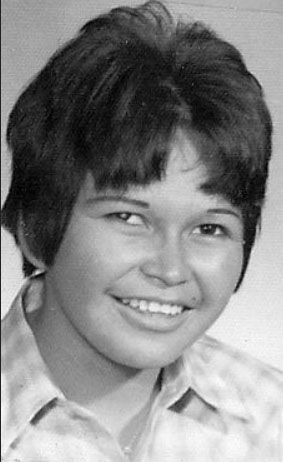Remembering a sister in spirit: Helen Betty Osborne

By Marci Becking
Today I remember Helen Betty Osborne.
There are times in our lives when we take extra notice of what is going on around us – make linkages to past experiences and events that happen today.
As I sat among the 40 who gathered at the Sisters in Spirit vigil at the North Bay Indian Friendship Centre, I couldn’t stop thinking about her.
Betty Osborne’s life was taken November 13, 1971 – a year before I was born. She was attending school in The Pas, Manitoba which was a long ways from her home in Norway House First Nation.
Since that dreadful November night nearly 43 years ago, the two communities of Opaskwayak Cree Nation and The Pas have made a real effort and have moved beyond the segregation in school lunch rooms, the bars and even at the movie theatre. Yet, The Pas Correctional Centre has a high aboriginal population and racism is alive and well in the community.
It’s surprising to me that even at the shopping mall – located on reserve – very few First Nations people employed there. It seems that self-sufficiency is harder to come by. Opportunities still are not give to First Nations people.
The town of The Pas all shared in the conspiracy of silence – not talking about the big elephant in the room called racism. Betty Osborne would not have been killed if she wasn’t a First Nations woman. The four men who abducted her off Third Street in The Pas that night were looking for a squaw to party with. Betty didn’t want to party, and she was driven out of town near a pump house north of town on Hwy 10 and was murdered.
I have probably passed that pump house over hundred times in my life growing up in Mathias Columb Cree traditional territory. When I was old enough to understand what happened to Betty, I thought of her often.
I thought about how, while she was beaten and stabbed to death, those men showed their own racism and disregard for another person’s life.
While I watched the slide show at the vigil I thought about Betty’s family. As much as her family endured the pain to hear that their daughter and sister was so violently murdered, at least they knew what happened to her.
They had closure. That’s something that so many families of the murdered and missing women do not have.
To learn more about Helen Betty Osborne, visit The Helen Betty Osborne Memorial Foundation http://helenbetty.ca/
Marci Becking serves as the communications officer for the Union of Ontario Indians and is editor of anishinabeknews.ca


